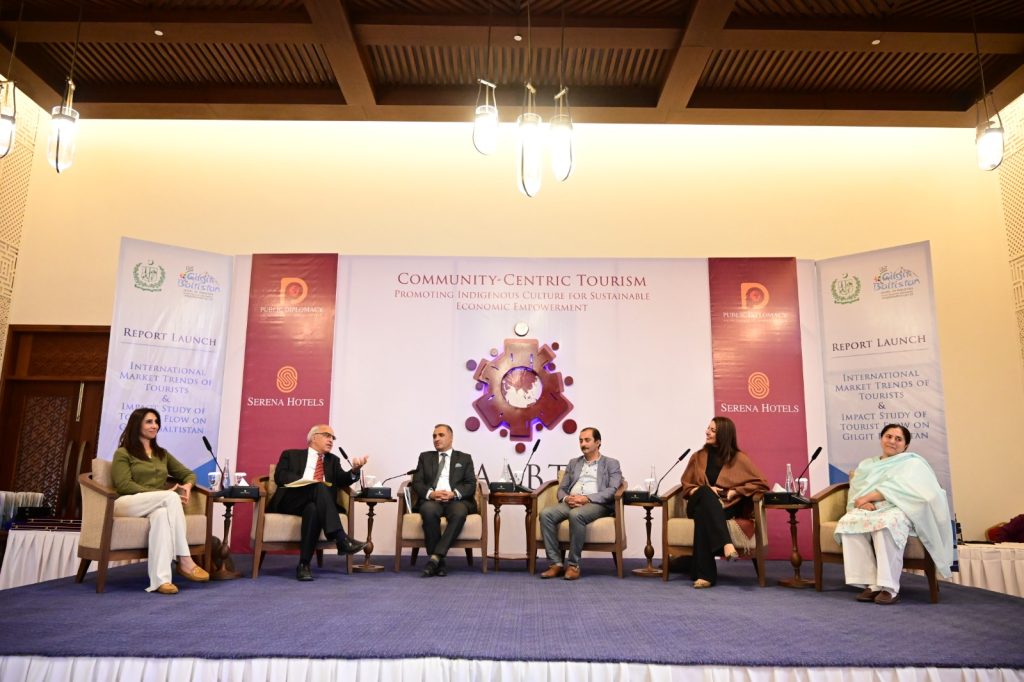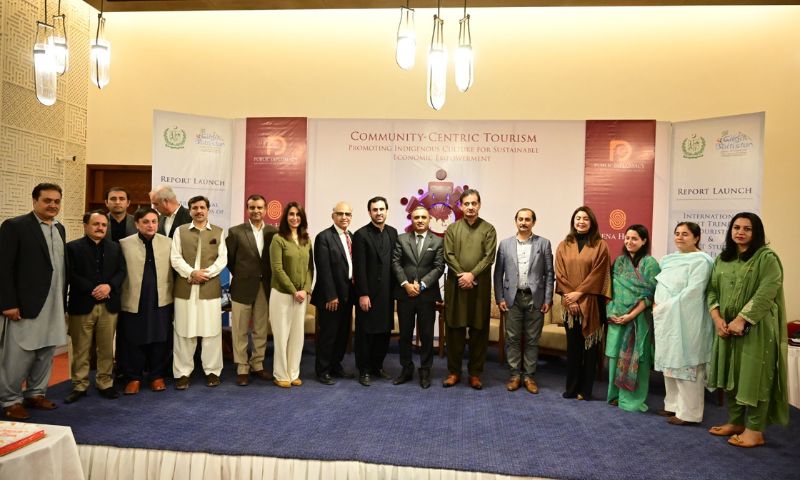HUNZA: World Tourism Day 2024 has been celebrated with an impactful discussion hosted by Serena Hotels in Hunza on Saturday, where industry speakers discussed the power of community-centric tourism in safeguarding traditions and boosting economic resilience.
The event gathered a diverse group of experts, government officials, and industry leaders to explore the vital role of community-focused tourism in preserving cultural heritage and promoting sustainable economic growth in Gilgit-Baltistan.
The discussion centered on the potential of local traditions and crafts as catalysts for tourism, highlighting their importance in preserving indigenous culture while generating economic opportunities for local communities.
Lal Bano, Manager of Karighar and a key panelist, emphasized the empowerment of local artisans, particularly women, through community-focused initiatives. She shared how these programs provide platforms for artisans to showcase their crafts and preserve traditional skills, fostering economic independence and cultural preservation.
Zameer Abbas, Secretary of Tourism, Sports & Culture for Gilgit-Baltistan, spoke about the government’s commitment to supporting sustainable tourism. He outlined initiatives aimed at encouraging cultural preservation while enhancing tourism opportunities. Abbas stressed the significance of public-private partnerships in ensuring long-term benefits for local communities.
The discussion also addressed the challenges of promoting sustainable tourism in mountainous regions. Raja Ali Anwar Khan, General Secretary of the Gilgit Baltistan Association of Tour Operators, offered insights into responsible tourism practices that protect the environment while providing economic benefits to local populations.
Adding an academic perspective, Prof. Dr. Attaullah Shah, Vice Chancellor of Karakoram International University, highlighted the crucial role of education in advancing sustainable tourism models. He emphasized the need for a balanced approach that integrates environmental, cultural, and economic goals in tourism development.

The panel concluded with several key takeaways, including the importance of preserving indigenous culture as a core aspect of tourism and the need for strategies that empower local communities through tourism-related opportunities. Recommendations were made for stronger collaboration between the government, private sector, and local communities to support sustainable tourism practices in Gilgit-Baltistan.
This event was part of Serena Hotels’ Raabta Initiative, a platform designed to facilitate meaningful dialogues on critical topics impacting communities and society. Through Raabta, Serena Hotels aims to create spaces for impactful conversations that drive positive change, addressing the diverse challenges and opportunities faced by the regions in which they operate.

























